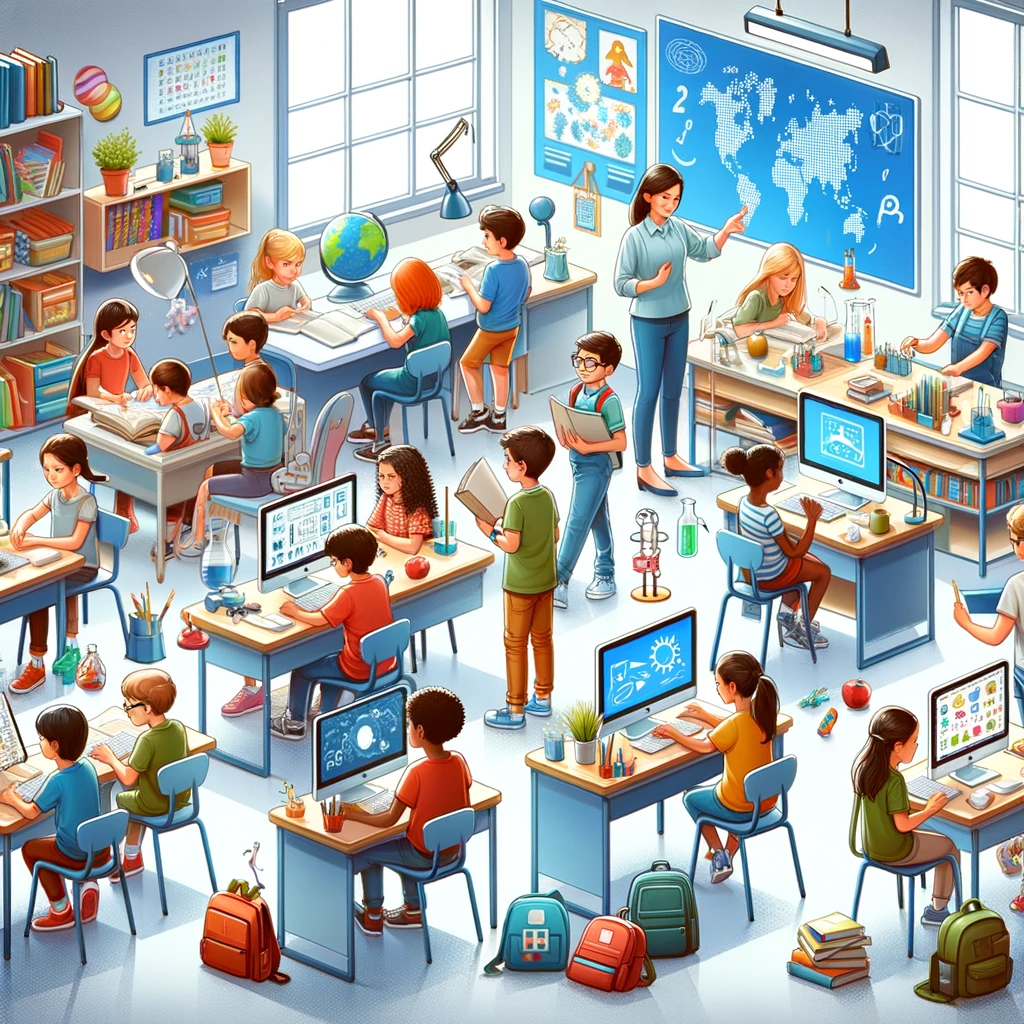
Table of Contents
A2 Level (Elementary)
- What subjects do you study at school?
- Who is your favorite teacher and why?
- Do you like to do homework?
- What is your favorite subject in school?
- Do you go to school by bus, car, or walk?
- What do you do during break time at school?
- Can you name five things in your classroom?
- Do you wear a uniform to school?
- What time does your school start and finish?
- Do you have friends at school?
- What is the most interesting thing you learned at school?
- Do you have sports at school?
- What do you eat for lunch at school?
- Can you draw a picture of your school?
- Do you like to read books at school?
- What do you do in art class?
- Do you like to study with friends?
- What color is your school bag?
- How do you get good grades?
- What do you want to learn more about?
B1 Level (Intermediate)
- Why is education important?
- What makes a good student?
- How can teachers make lessons more interesting?
- What are the benefits of group work in class?
- How does technology help you learn?
- Should students wear uniforms? Why or why not?
- What is the best way to learn a new language?
- How do you prepare for exams?
- What are some problems in schools today?
- How do extracurricular activities benefit students?
- What is your opinion on homework?
- How does education differ in other countries?
- What would be your ideal school?
- How can schools help students with different learning styles?
- What role do parents play in education?
- How important are arts and music in school?
- What subject would you add to the school curriculum?
- How do you deal with difficult subjects?
- Should students have a say in what they learn?
- How does school prepare you for the future?
B2 Level (Upper Intermediate)
- Discuss the impact of online learning on education.
- How does the education system need to change for the future?
- What are the pros and cons of standardized testing?
- How can education reduce social inequality?
- Can you compare the education system in your country with another?
- How does culture influence education?
- What are the benefits of studying abroad?
- How can schools better support mental health?
- What skills are most important for students today?
- How do teachers impact a student’s life?
- What is the role of critical thinking in education?
- How do you think education will change in the next 20 years?
- Should education focus more on practical skills?
- How can schools promote environmental awareness?
- What is the value of higher education?
- How do you think technology will shape the future of education?
- How can education promote diversity and inclusion?
- What are the challenges of lifelong learning?
- How can students be motivated to learn?
- What role does education play in a country’s development?
C1 Level (Advanced)
- Analyze the relationship between education and democracy.
- Discuss the impact of socioeconomic background on educational opportunities.
- Evaluate the effectiveness of different teaching methodologies.
- Can you explore the concept of ‘learning to learn’?
- Analyze the role of education in shaping personal identity.
- Discuss the balance between academic and vocational education.
- Evaluate the role of critical pedagogy in modern education.
- Can you explore the impact of globalization on education?
- Analyze the challenges of inclusive education.
- Discuss the implications of AI and automation for future education.
C2 Level (Proficiency)
- Critique the role of education in perpetuating societal norms.
- Discuss the philosophical foundations of educational theory.
- Evaluate the impact of political ideologies on education policy.
- Analyze the intersection of education, technology, and ethics.
- Discuss the role of education in fostering global citizenship.
- Evaluate the impact of cultural hegemony on educational content.
- Analyze the role of education in addressing global challenges.
- Discuss the implications of lifelong learning in a rapidly changing world.
- Evaluate the role of interdisciplinary approaches in education.
- Analyze the future of educational institutions in the digital age.

